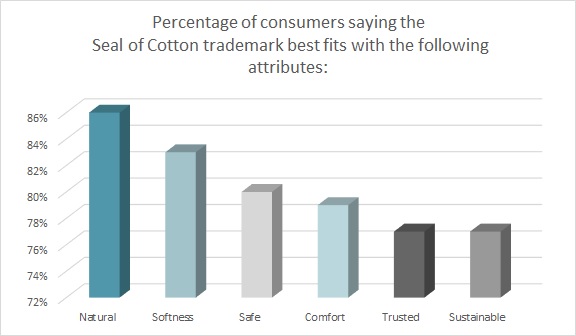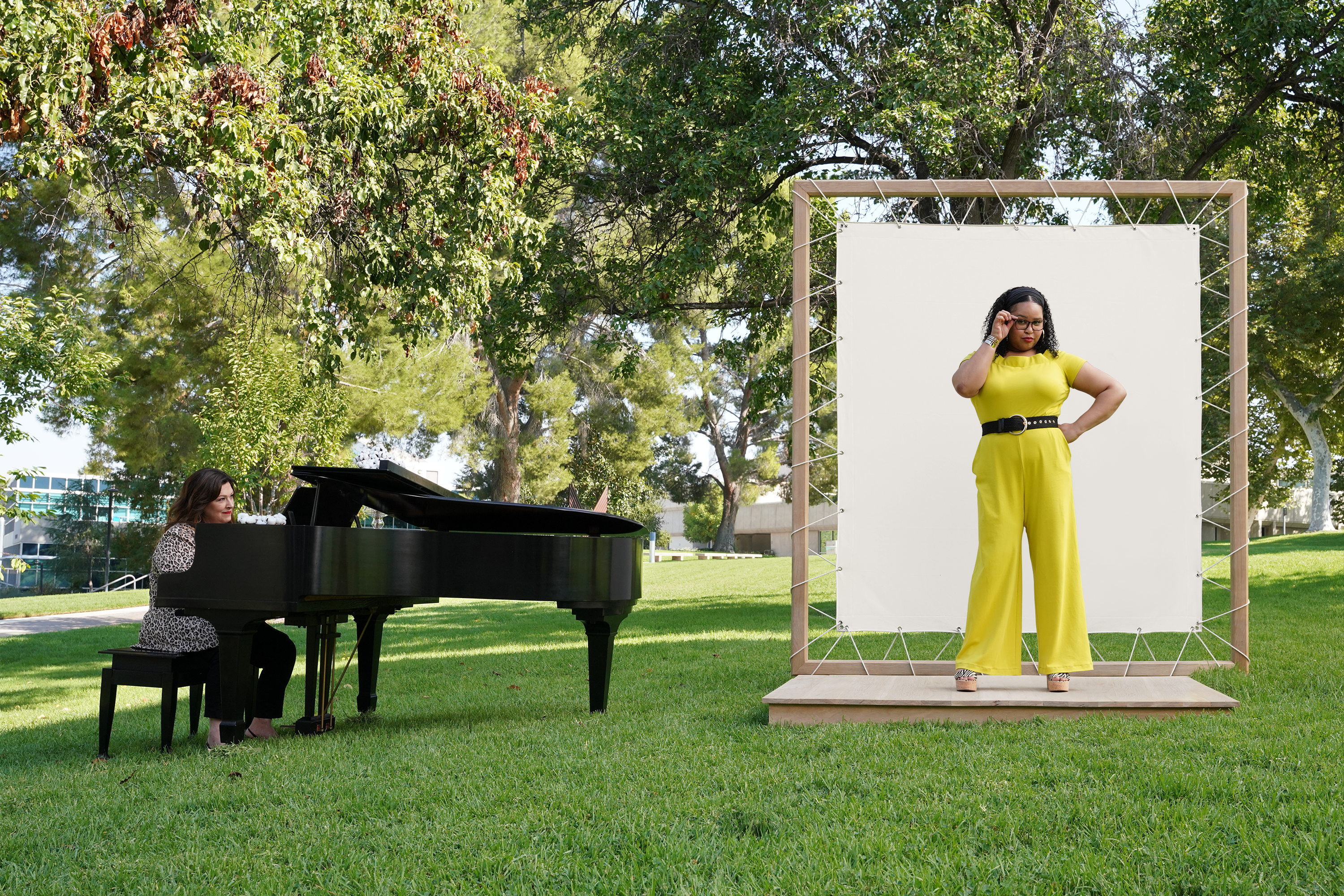After more than a year of pandemic-related stress, anxiety and sadness, people could use a laugh. And that’s part of what Cotton Incorporated’s latest “The Fabric of Our Lives®” campaign is bringing to consumers on broadcast, streaming, and digital outlets beginning April 12. It’s also reminding viewers how the confidence, comfort, and relatability of cotton fit into Americans’ everyday lives.[quote]
The new ads feature singer and television host Carnie Wilson, who offers piano accompaniment and comedic commentary on the cotton outfits worn by “everyday people.” Viewers will meet “Rita,” who feels powerful in her cotton jumpsuit as she takes on a post-Covid dating world and “Jamie,” who can lead her team meetings with confidence in her breathable cotton blazer.
One ad will feature “Chris,” who is ready to go full craftsman now that he’s wearing his plaid cotton shirt.
“Reclaimed wood,” cracks Wilson, as she tickles the ivories before comically singing, “Cotton, the fabric of Chris’ lumberjack life.”
The Fabric of Our Lives® campaign began Thanksgiving Day, 1989, and was performed first by Richie Havens. In the early years of the ad, singers also included Phoebe Snow and Aaron Neville. The campaign paused its usage of the jingle in 2004, but reintroduced it in 2009 with artists that featured Zooey Deschanel, Miranda Lambert, and Leona Lewis.
With this year’s campaign, Wilson says it’s fun to think about how she’s continuing the jingle for her kids and their generation.
“The Fabric of Our Lives is one of those jingles that just stays with you,” she reflects. “I can’t remember the first time I heard it. I think it’s always been a part of the American soundtrack. The Fabric of Our Lives is a jingle everyone seems to know even if you can’t pinpoint the first time you heard it.”
Cotton Incorporated’s Kim Kitchings, senior vice president of consumer marketing, says the fashion industry realized over the past year that consumers seek comfort from familiar things, and they gain confidence when they put on their favorites clothing pieces, from soft cotton sweatshirts to favorite T-shirts and denim jeans.
New York Clothier has cotton “in its DNA,” says Kevin Stewart, co-owner and co-designer with Kay Davis, of the Pendleton, OR-based store and ecommerce site. The shop’s luxury shirts, bow ties and ringer tees are made from 100 percent cotton, as are the fabric bodies of lifestyle pieces like its buffalo plaid clutch and Dopp kit.
“The response when people look at the double-brushed flannels is, it speaks to them… viscerally,” Stewart says in an interview with the Cotton Incorporated Lifestyle Monitor™ column. “It reminds them of their grandfathers, their fathers. And they’ll feel the shirts and say, ‘Oh, this feels great,’ so it’s the feel that really attracts people. And there’s a familiarity. What we’re doing is not distant in memory because we’re working with cotton. It causes people to be reminded of something, and then they can indulge themselves and have a piece of it.”
That feeling is what the latest Fabric of Our Lives® campaign looks to demonstrate, even if it’s with a chuckle. As Cotton Incorporated’s Kitchings points out, “This campaign captures those emotions through relatable situations and brings a smile in a time when we’re really ready to wear one.”
The Fabric of Our Lives® campaign helps to reinforce the relationship consumers have been building with cotton, one that’s been aided by the Seal of Cotton, which was introduced in 1973. The Seal may be licensed to company’s whose products are made of cotton. And since it was established, consumers have been encouraged to “look for The Seal” when shopping.
Awareness of the Seal of Cotton logo is strong among about 8 in 10 consumers and garners nearly twice the awareness of the next closest logo, Lycra (42 percent), according to the Cotton Incorporated’s 2020 Seal of Cotton Consumer Research. Compared to competitive logos, Cotton is more likely to denote softness and comfortable fabric, as well as casual clothing associations.
The Seal of Cotton not only helps consumers identify products as containing cotton (92 percent), it makes them feel more positive about the product and brand that bear the logo (85 percent), according to the Seal of Cotton report. Further, more than 9 of 10 consumers (91 percent) say the Seal logo is a welcome identifier of the content of a product, and it helps them easily understand the fiber ingredients in a product without searching for content on the garment’s label (91 percent).

This is important, as consumers are taking more time to check labels. In 2020, 46 percent of shoppers “always/usually” looked at fabric content labels, according to Cotton Incorporated’s Lifestyle Monitor™ Survey. That compares to 42 percent in 2016. And more than three-quarters (78 percent) who say the Seal of Cotton trademark makes their shopping experience easier.
It seems the logo has a “halo effect for brands.” When consumers see it, 85 percent say feel like that brand is concerned about quality, 84 percent say the brand is more authentic and trustworthy, and 83 percent think the brand cares about sustainability, according to Seal of Cotton report.
“About 20 years from now, I would love to see one of our shirts in a vintage store and get the same feeling I got when I used to shop vintage,” Stewart says. “You’d find something amazing that lasts. And I believe in my heart of hearts that’s what we’re doing. We will be in that vintage store 20, even 30 years from now.”
